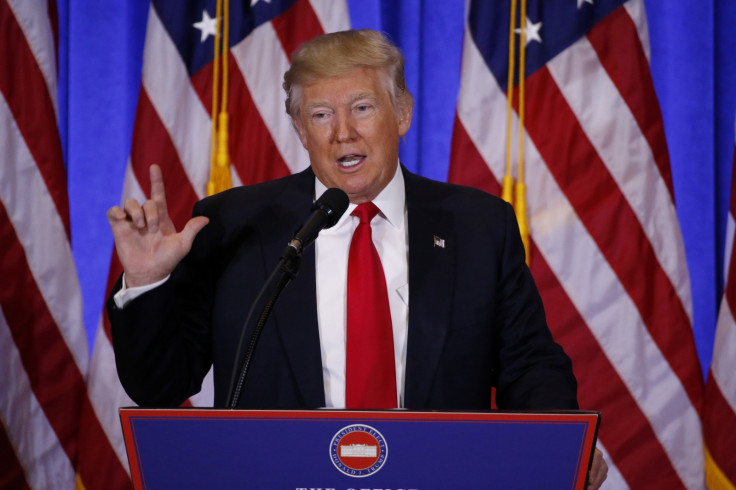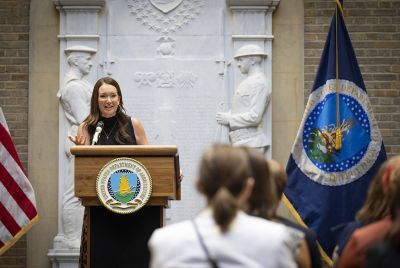Office of Government Ethics chief criticises Trump's business plan as 'wholly inadequate'
Director Walter Shaub noted there is still time to work with Trump's team to resolve any conflict of interest.

The chief of the Office of Government Ethics (OGE) was not impressed with President-elect Donald Trump's plan to separate himself from his business. OGE Director Walter Shaub slammed Trump's proposal as "wholly inadequate" in resolving any potential conflicts of interest.
"The plan the president-elect has announced doesn't meet the standards that the best of his nominees are meeting and that every president in the last four decades have met," Shaub said during a speech at the Brookings Institute in Washington.
"We can't risk creating the perception that government leaders would use their official positions for profit," he continued. "Unfortunately, his current plan cannot achieve that goal."
Trump announced on Wednesday (11 January) that he would give control of his business to his two adult sons, Donald Trump Jr and Eric Trump. The president-elect also said he would place his assets into a trust. "They are not going to discuss [the business] with me," he said. "Again, I don't have to do this. They're not going to discuss it with me."
Shaub, an Obama appointee, said the plan was not good enough. "The idea of limiting direct communication about the business is wholly inadequate. That's not how a blind trust works. There's not supposed to be any information at all," the ethics director said.
Trump announced he would not be selling his company or real estate holdings, The Hill reported. His plan would give him limited access to information, including profit and loss statements.
The OGE director also said he was "troubled" by the notion the incoming administration would demand OGE approve a diversified portfolio of assets. He said there was no "legal mechanism" to achieve that and noted that an individual who wants a blind trust has to work with OGE from the beginning.
Shaub acknowledged that divesting himself from his business holdings "could be costly" for the president-elect, but said it was a necessary step. "No, I don't think divestiture is too high a price to be president of the United States of America," he said. However, he said there is still time to build on Trump's plan and fix it until all possible conflicts of interest are resolved.
© Copyright IBTimes 2025. All rights reserved.





















